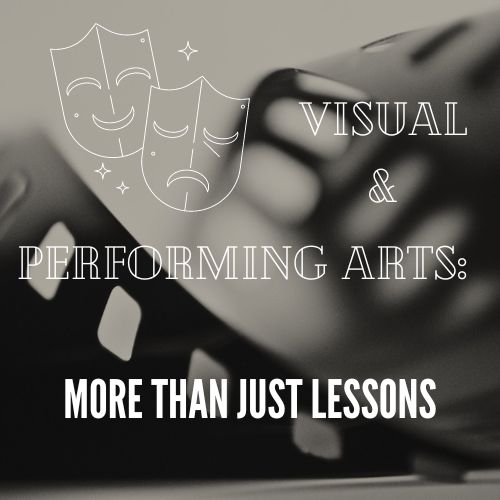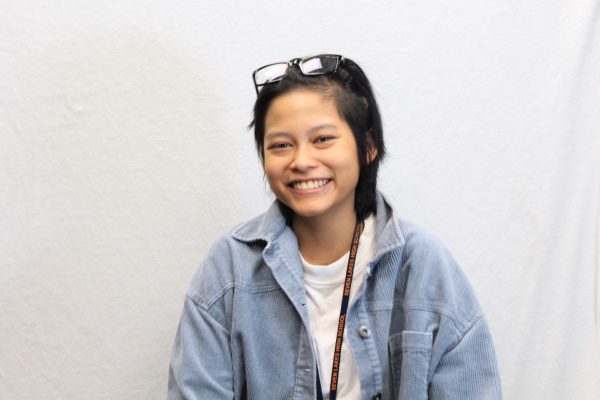In the eyes of students, high school is just another pile of lessons with twice—or thrice, depending on which classes—the difficulty they had in middle school, and is a sort of preliminary to get into college; however, some courses offered during this four year period might have a more meaningful impact that outlasts even college years.
At Seven Lakes, one can choose from a variety of electives: they range from the most STEM-core classes, to the different paces and heights of sports, to the determined marches or harmonious melodies of musicians and singers, or even the light-feathered and creative or more dramatic courses of the arts. For instance, AV Production teacher Coach Jay Kolkman has to find a way to make his lessons suitable for his students.
“I think since what I teach is primarily visual, I have to show [my students] how to do things,” Coach Kolkman said. “Most students—at least in what I teach in—are visual learners, so they need to be able to see someone do it rather than just hear the [instructions].”
Although arts and humanities classes are mostly visual, some teachers like to spend more time making sure students feel safe and confident in their lessons.
“I teach [in] a very creative and positive environment,” Technical Theatre teacher Austin Oliver said. “I like to work towards students finding a balance of understanding and mastery of the content, but also really understanding and appreciating the work that goes into it, even if it’s of no interest for them.”
Mr. Oliver has been employed as a Technical Director for two years, has taught technical theatre for eight years at a junior high level and is now in his first year of teaching at Seven Lakes. Throughout his career as a teacher, he has learned to adapt to his students.
“Almost every great teacher has to accept that they must change, adapt, and grow to match their students’ and their strengths and weaknesses,” Mr. Oliver said. “One of the most notable changes I’ve had since the start of my career is less worksheets, and more group learning to be able to teach others how to work as a team and find success.”
His goal to create a positive environment is successful. Hall Bailey, a sophomore in Technical Theatre II, can affirm that Mr.Oliver’s classes offer a comfortable learning environment.
“Before class starts, he would usually warm us up and have a bit of conversation with the class—and then tell us what we need to do for the day,” Bailey said. “He [would] encourage us [whenever] we have to do [something] scary, and it [would] turn out to be okay, while other teachers just say to get over it.”
Similarly, the theater arts classes also offer a warm welcome for students that are passionate about acting or are simply there by curiosity. Students have different motivations when they enter theatre for the first time: some are there for the speech and arts credit, some are there for fun, whilst others might truly be passionate about drama and acting. Hence, it is important for theater arts teacher Emily Rickford to take into consideration the different backgrounds of students not only for Theatre I classes, but as well as higher level theater classes.
“I understand that not all students that take theatre will end up being famous actors or actresses; however, it is my hope that I teach them skills or tools that they can use outside of theatre class,” Ms. Rickford said. “I also hope that theatre teaches students the importance of being a ‘good human’ by respecting and being kind to those around us, even if we do not agree on everything.”
On the subject of skills that students can use outside of school, theatre is one of the many examples of class electives that teach basic skills that they need in everyday life.
“Theatre teaches students how to communicate well with others, problem solving abilities, how to work well in a group, and respect and understanding for peers and adults,” Ms. Rickford said.
Teenagers are often seen scrolling and posting about their daily lives on the media; hence, the AV Production class might be their go-to class to get the likes and followers they so covet.
“What’s easy for what I do is because—especially in today’s world with social media—there are so many people that need a video or an animation made for their social media presence, for their website, for any type of communication they want to do online,” Coach Kolkman said.
Having the ability to communicate that would facilitate one’s social media presence are skills that are widely looked for in today’s world of fast-paced technology. However, there are still other skills students might want to learn before they start managing every aspect of their lives from family to money management etc.
“Knowing how to use tools, how to read a tape measure, how to sew, how to understand electricity and electrical equipment, and so much more,” Mr. Oliver said. “Theatre in whole is filled with real world implications and applications, [but] it’s always about the student being open to accept that point of view.”
It does seem like performing and visual arts classes are vastly different from core classes; however, the structure of their lessons are quite similar.
“It’s not fair to compare a class like technical theatre—or even acting theatre—to a class like math,” Mr. Oliver said. “However, my class—when broken down to the skeletal basis—is just like any other class for lessons. We introduce the new content, we gain understanding, application of the content, and then evaluate how well we mastered the content.”
Nonetheless, whereas core classes might focus more on getting the lesson across students through writing notes or doing worksheets, theatre classes involve more interaction.
“Theatre takes a very hands on approach to all the major topics we learn,” Rickford said. “We are often working in groups or practicing for an in-class performance. It is rare that the class is sitting in their seats the whole class period.”
What’s most important is what students take away from their lessons. Although classes like science, math, or social studies can somewhat be applied to everyday life, some electives have the power to teach students skills that they would keep throughout their whole lives by creating a safe space for students to perform at their best.
“I found a community in tech and [can] be myself,” Bailey said. “I have learned a lot from tech and always look up to the inspiring upperclassmen who have helped me get through so much. I look forward to inputting what I have learned from them and in class in my future work.”



